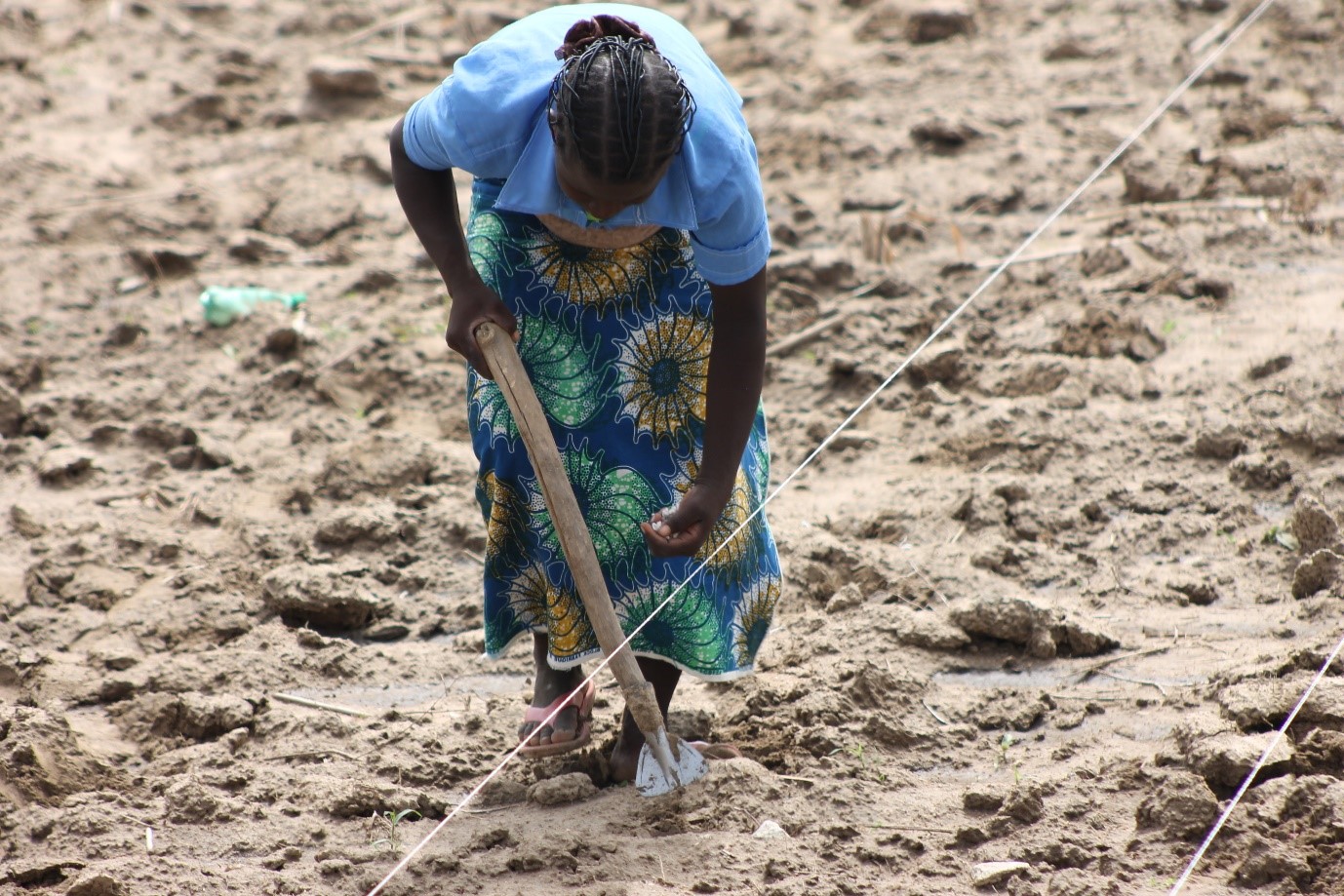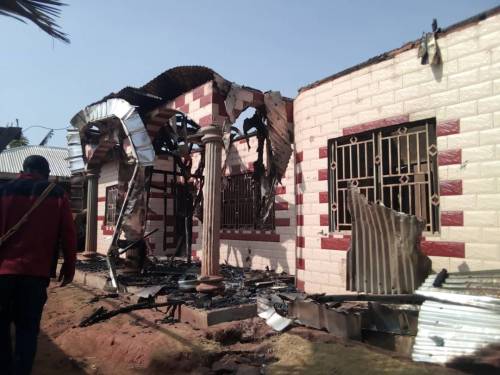Armed conflict in Cameroon leads to displacement and food insecurity
By Jaff Bamenjo and Chi Nixon | RELUFA, Joining Hands Cameroon
Gladys, a 37-year-old mother from Batibo village in the Northwest region of Cameroon fled for safety and took refuge in the bush with her 3 children when the army attacked her village. Gladys and her children, like thousands of others like them, have been caught in the middle of a violent conflict between the Anglophone (English-speaking) regions and the Francophone (French-speaking) controlled government and military.
In 2016, Anglophones, who live primarily in the Northwest and Southwest regions on the border of Nigeria and constitute approximately 20% of the population of Cameroon, raised their voices to denounce their perceived marginalization within the country.
After Germany lost the war in 1916, France and Britain seized its former territories, and shared them among themselves. In 1960, French-speaking Cameroon gained independence, and created a new nation. A year after, English-speakers had the choice between joining the new nation or joining Nigeria. They decided to join Cameroon.
But since French speakers represent 80% of the country and retain most of the political and economic power, some Anglophones have felt marginalized by the central government. For example, even though English and French are the two official languages of the country, there has been bias towards conducting government business and other administrative procedures in French with no systematic translations into English.
In October of 2016, Anglophone lawyers and teachers organized a strike to protest the imposition of French-speaking within the judicial and educational systems English-speaking regions of Cameroon. The Francophone controlled government responded to the peaceful protests with force, beating and imprisoning many protestors.
The brutal response by the government to peaceful protests has resulted in the emergence of armed groups that are fighting the military and
the consequences are quite telling. In July 2019, humanitarian agencies estimated that more than 1.3 million people from the Northwest and
Southwest regions need humanitarian assistance. Over 2,000 people have been killed, 250 villages destroyed, and 39,000 people live as refugees in some towns in Nigeria while 430,000 people are internally displaced in some towns and cities within Cameroon. However, the majority of those who have fled their villages are living in the forests and bush. Hunger and poverty have suddenly become a serious issue for those affected by this armed conflict.
Gladys and her family never experienced hunger until the onset of the conflict. Before fleeing her village, she was a farmer cultivating plantains, palm nuts and cocoa. Through her farming, she was able to feed her family and generate enough revenue to send her kids to school and pay for basic needs for the household. She even generated enough income to buy a car. Now that the armed conflict has driven her from her village to the city, she has been forced to abandon her farm and is no longer able to generate revenue or feed her family. The armed conflict has transformed Gladys from a food producer into a food beggar.
She laments that she now shares a two-bedroom house with 11 people and is unable to secure three meals a day for her children. Today, she can no longer afford to pay tuition for her children to attend school, nor can she afford to take them to the doctor when ill. Gladys’ story is just one out a thousand similar stories of people impacted by the Anglophone conflict in Cameroon.
More than 70 % of the population in the conflict-affected Northwest and Southwest regions of Cameroon are subsistent farmers who have always produced enough to feed their families and generate some income. Food insecurity has never been an issue there, but the ongoing conflict has reversed the trend. Families that were food self-sufficient have abandoned their villages and farms to seek safety only to become food beggars.
For many years, Joining Hands and its partners like RELUFA, around the world have been working to address the root causes of hunger and poverty. Joining Hands has achieved some success in addressing root causes, but in conflict situations like the war in the Anglophone regions of Cameroon, all past efforts are destroyed because of the violence.
Conflicts generate hunger and poverty in their wake. A silent humanitarian disaster is unfolding in Cameroon as a result of the ongoing armed conflict. As the conflict hasn’t been in the news much, people feel abandoned. Humanitarian agencies have been very timid to respond so far, and the return to peace doesn’t seem to be in sight.
With political will, this conflict could have been avoided or stopped soon after it started. People are tired of the war and want to return to a normal life. They want their children to go back to school after 3 years of staying home. They want to live without fear, and to continue to work to take care of their families. They want to return to their houses and their communities.
But while long-term solutions to the conflict are being sought, emergency assistance in basic needs like food, shelter, education and health care are crucial, so that more than a million people like Gladys can have the minimum to survive.
.

